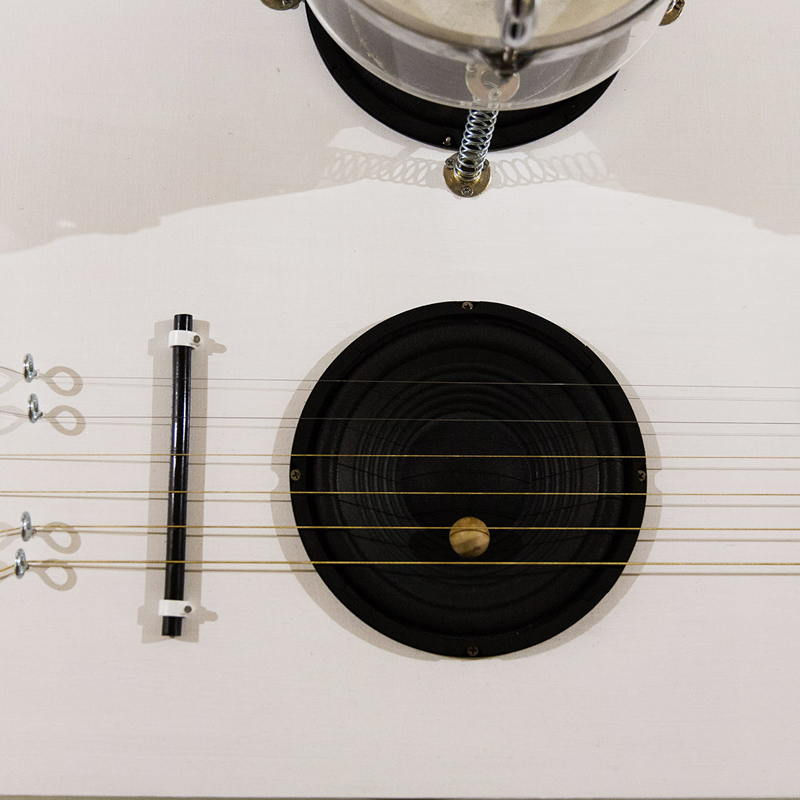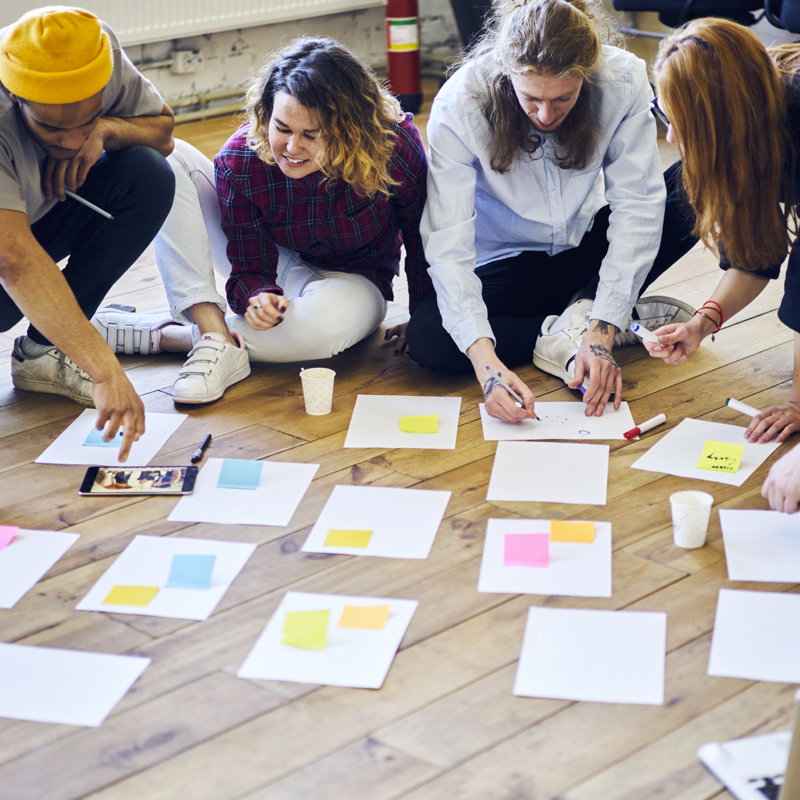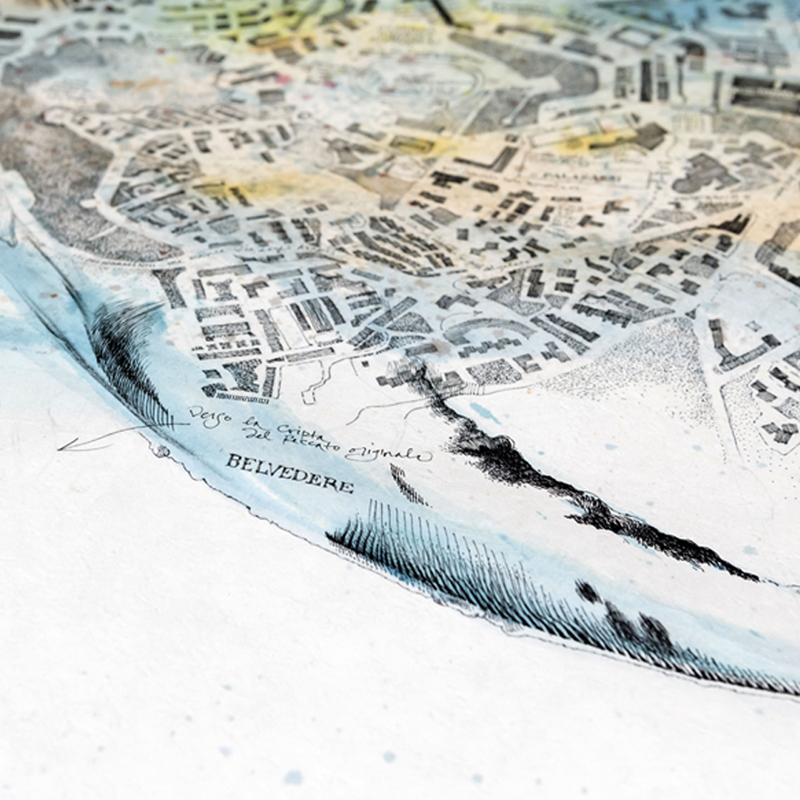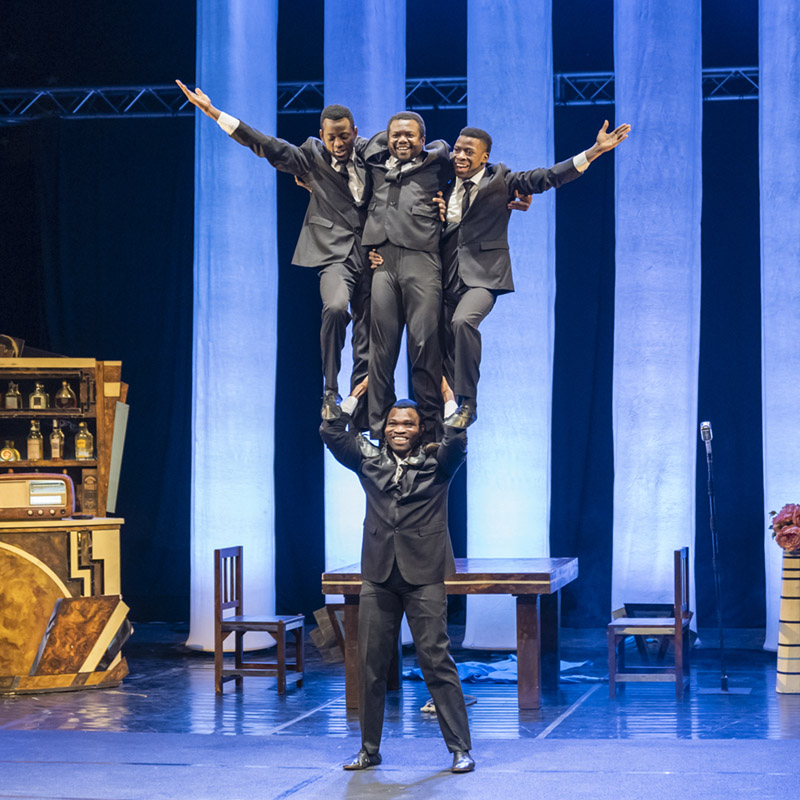2018 NUOVE CATEGORIE
Sound art explores and invades the places of Matera 2019

The sounds of IN ViTRØ ~ Artificial sønificatiøn will soon start to echo through the cisterns, subterranean areas, castles and abbeys of Matera and the rest of the region. IN ViTRØ is a sound art project co-produced by LOXOSconcept which explores the relationship between sound and silence with interactive art events and workshops. Exhibitions, installations, performances, residencies, labs and workshops discover the silence that never ceases to involve sound and require its presence.
Significant and everyday places from the past are ideal scenarios in which to start reflecting on how our modern environments are bombarded by sound, but also to suggest how we might move towards a new acoustic ecology. The work Echi d’Acqua (water echoes), for example, offers an artistic interpretation of the Palombaro Lungo, the largest cistern for water collection hidden beneath the central Piazza Vittorio Veneto. The art installation will emphasise the relationship between sight and sound through the sound sign found in the music of five composers. The specific acoustic features and important architectural elements of the Palombaro will be enhanced through visual and musical stimuli: the presence of water, its forms, geometry and flow, sensorial impact of the walls and their colour, the impression of acoustic resonance phenomena.
The Sound Art Exhibition in September still has a call open for artists across the world of all ages to propose a reflection on sound and silence. The art installations, performances and sound sculptures, chosen by a special international committee representing leading art centres, will descend on Matera as expressions of the latest trends in sound art, which will be a veritable sonic invasion!
The competition is in two sections: the first is for existing sound art works to be displayed in the exhibition, while the second is for projects to be developed and presented in the art residencies that will take place in the picturesque locations of the Monastery of Santa Chiara in Ferrandina, the Bottini di Irsina and the Abbey of St Michael Archangel in Montescaglioso. The deadline for submitting proposals is 15 May 2019.
Thanks to the European partnership with ZKM [Center for Art and Media] (Germany), Gaudeamus Muziekweek (the Netherlands), Tempo Reale and Spaziomusica (Italy), EU Japan Fest (Japan) and CeReNeM (UK) the works produced and selected may also be shown in 2020 in other parts of Italy and in Europe, to encourage art mobility.
The IN VITRØ project will launch in May with the section MUTE [silent film mutations] and focus on silent films, in particular on sound and music aspects, in collaboration with the Keyhole Association and the EDISON Studio collective. IN VITRØ concludes in late September 2019 with a new production: a preview performance in Italy of work by the famous Japanese artist Ryoichi Kurokawa.
Information about all the project events can be found on the official calendar, which is regularly updated.
The results of the call for artistic residencies are online

The results of the Call for Matera 2019 artistic residencies are available online. Many people participated in the call, with half of the 115 forwarded applications being submitted by associations working all over the region. 9 out of 35 eligible projects, which were selected by the board, will be funded.
Many of the submitted projects stand out for their high quality and final decisions were made based on the slight difference between projects intending to create cultural productions and projects seeking to exploit the opportunities offered by an artist-in-residence programme.
The winning projects deal with very different topics. "La radio da quaggiù" by the Association Al Parco Onlus of Satriano di Lucania deals with radio, a medium that Matera 2019 has chosen over the years as its favourite means of communication because of its intangible characteristic and wide reach.
"InsideSouth", by the collective PLUS APS of Pisticci, is a photography residency aimed at taking pictures on what is not apparently visible as well as building a collective reflection on the fragility of the territory and on the potential re-use of abandoned or underused historic building heritage.
"Comics storytelling" by the Association Supertramp of Viggiano aims at regenerating the mountainous suburbs through the gaze of cartoonists.
“Torre Stormita” is a residency organised by the Association “Terre Joniche Magna Grecia” which gives artists the opportunity to be hosted in Medieval towers overlooking the sea.
The “Centro Carlo Levi” of Matera submitted an urban regeneration project called “Icone per il futuro” that will involve important street artists. “Qualcuno che ne carpisca il segreto” is a project by the cooperative Synchronos, which will bring together Basilicata and Sardinia in sewing workshops held by internationally-renowned artists and fashion designers. The association Basilicata Link suggests activities on the almost abandoned rural suburb of Borgo Taccone and aims to re-write its history and future with the project “Esto También pasarà”.
The Regional Committee of Arci Basilicata will create “Un atlante del paesaggio rupestre” (An Atlas of the Rock-Hewn Landscape), which is a map of stories, stones and legends hidden between Matera and Montescaglioso, within the mysterious area of the Murgia and the Calanchi. The association Lucania Documenta will implement the “Gens - Mutazioni” project, which will tell the story of the past, the present and the future of Rivello through the voices of its inhabitants.
This link shows the list of all eligible projects that will be funded, the eligible projects that cannot be funded due to lack of resources, non-eligible projects as well as the projects that could not have been evaluated.
On 30 March the institutions that submitted the 35 eligible projects, which obtained a minimum score of 50, were invited to submit their project ideas to the community and to take part in a co-creation day in collaboration with European partners. The meeting focused on cross-border mobility and sustainability.
Matera 2019 commits itself to continuing the work started on 30th March so that further funding and participation opportunities may be highlighted to build up a community of residence curators. The opportunity of allocating mobility microvouchers ("go&see") to all the holders of eligible projects is currently being examined. It was already done with the Project Leaders and it proved successful in setting up international networks of European partnerships.
Emotions of the city preserved in the Secretissima Camera de Lo Core

A blue box containing a map of the city, a bookmark with a list of emotions, a few crayons and some sheets of drawing paper for you to record important places in your life. This is the starting point for the long journey of emotions, collected and preserved in the Atlas of the City’s Emotions. Over 300 of Matera’s residents, aged between10 and 80, have been given this box and asked to draw their own ‘emotional map’, identifying places in the city where significant emotional events in their lives have taken place. 300 residents, 300 emotional maps, 3,000 secrets: a first kiss, the route to school, a quarrel, the streets where their grandparents lived, places which are still there, have changed, or have disappeared.
On 23 and 24 March La Secretissima Camera de Lo Core was opened – a site-specific multisensory installation divided into different areas, where residents’ memories bring to life the soul of places. The Chamber, which is the first chapter in the project ‘Atlas of the City’s Emotions’, co-produced by the Teatro dei Sassi, is an innovative way of visiting the city. Secret tales of the city become the spark that illuminates Matera’s streets. The installation will remain open for any visitor with a Matera 2019 Passport until 31 July in the Library, where the cultural heritage of the city is stored.
Some important international partners have contributed to the project. The stories of the ‘emotional map makers’ have been read and adapted by the author Alessandro Baricco with young writers from the Holden School in Turin who, acting as a link between the life of the city and the feelings of its residents, have produced a fascinating and diverse collection of stories ‘from the heart’ of Matera.
Closely connected with the maps drawn by residents are 37 works by the artist Stefano Faravelli – well known for his travel log – and by a group of over 40 artists under his direction, half of whom are from Lucania.
During the inauguration of ‘La Secretissima Camera de Lo Core’ visitors were entertained by choreography designed by the German dancer and choreographer Heike Hennig, who was inspired by the emotional maps, the works by the artists who took part in the ‘apiaries’ directed by Faravelli, and the first stories of young writers from the Holden School.
The design of the Chamber is also the work of Paolo Baroni, who makes theatrical devices and artisan lighting, while the artistic director is Massimo Lanzetta of the Teatro dei Sassi.
The literary and artistic adaptation and the community that collected memories, secrets and stories, have together created a great ‘Mother Map’: an emotional itinerary through the city produced by Stefano Faravelli on rice paper, which describes 15 stages of a novel route including unusual features of Matera and contains the wonderful scroll written by Alessandro Baricco. From 2020, the ‘Mother Map’ will be produced in a pocket-sized format and distributed to visitors who want to follow the ‘emotional places’ route through the city. On returning home, visitors will find a moment to reflect on their experiences of the journey and share them on the Atlas website with all the other ‘emotional travellers’.
Circus+, The Big Numbers of the Festival

The Circus+ festival closes having achieved great interest and participation with the numbers saying it all. 5 weekends of shows dedicated to the 5 themes of the candidacy bid-book during which the Matera 2019 audience watched the most amazing and riveting circus shows in Europe.
23 international circus companies were involved along with 112 artists coming from 10 different countries and from the South of Italy, and 5 bands took turns on stage at both the Grand Chapiteau (Big Circus tent) and the Petit Chapiteau (Small Circus tent) from 14 February to 17 March.
A packed programme of sold out events - 37 shows, 6 events including the presentation of a book and projections of films about the circus world as well as tens of shows with about 10,000 audience members who were welcomed heartily by 160 enthusiast volunteers. Moreover, Matera 2019 social media reported a huge number of reach and online engagement. Pictures, videos and the whole livestream of one of the performances reached 19,000 Facebook views, 3021 Linkedin views, and obtained 275 Instagram likes on average as well as 1594 views on the Youtube channel.





